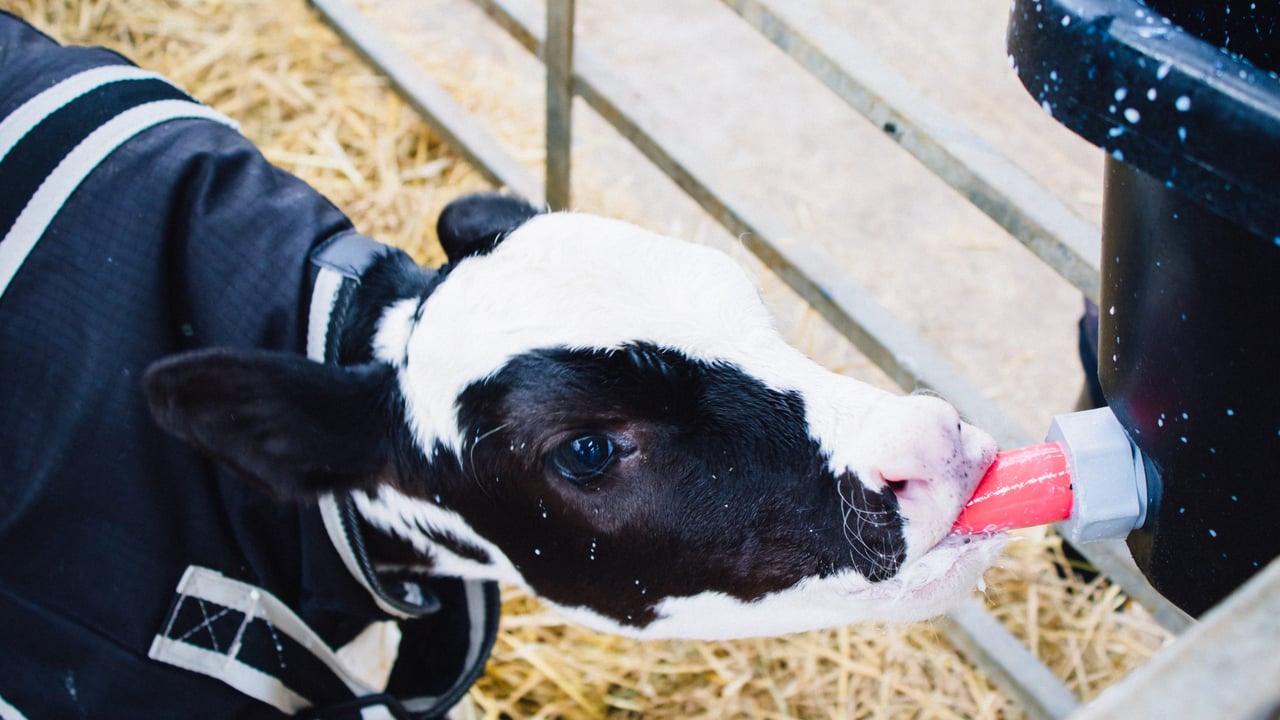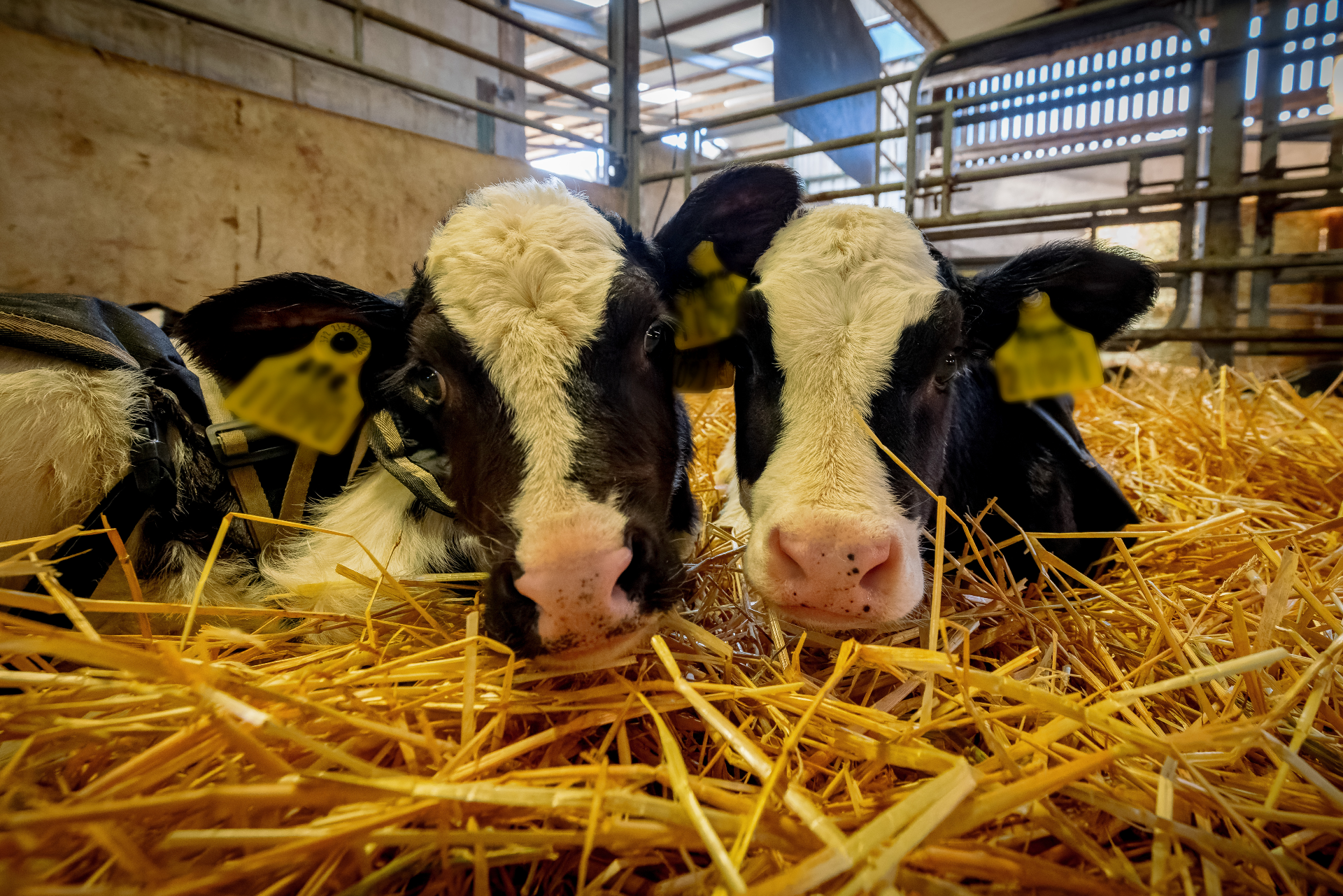Calf Rearing Series 2025

When you purchase a bag of calf milk replacer, what should you be looking for from your supplier?
The use of well processed, high quality ingredients should be your number one priority when calf rearing.
First and foremost, feeding your calves the right amount of a proven, highly digestible calf milk formula is crucial economically if you are to make the most of early life feed conversion efficiency.
Use of an appropriate, well-chosen precision-formulated calf milk replacer product is also vital to lay down the right nutritional foundations for better fertility and good milking performance in later life, according to JP Harkin from Volac Milk Replacers Ltd.
“Always scrutinise milk replacer bag labels carefully and alongside the analytical declaration, always check the constituent list to ascertain the source of protein included," Harkin said.
"Essentially, this boils down to always looking for a calf milk replacer product based on concentrated whey protein, not simply whey powder, or one based on a high level of good quality skim.
“E.g., research work at AFBI [Agri-Food and Biosciences Institute] Hillsborough highlighted the fact that well formulated, high-quality milk replacers with either skim milk powder, at above a 40% inclusion level, or concentrated whey protein as the major source of dairy protein both deliver comparable animal performance.”
Whatever the base, the digestibility of any calf milk replacer product in calf rearing is influenced by the type of protein and fat source used in the formulation, along with how these important nutrients are processed during manufacture.
“Protein sources and quality are vital, as is the fatty acid profile of the fat source included and its globule size – which needs to be consistently small for enhanced digestibility, as it is in whole milk),” Harkin continued.
With protein nutrition, Harkin stressed that it is important to appreciate that the crude protein content declared on the milk replacer bag label does not give you an indication of the ‘true’ useable protein available to the calf.
“True protein is a measure of the amino acid content of the diet – the vital building blocks of protein – and that’s what you really want to know.”
E.g., Harkin stressed that the concentrated whey protein base used by Volac Milk Replacers Ltd. includes 16 times the amount of milk fats compared with standard whey or skim milk powders.
“The fat percentage, in the dry matter, of skim milk powder and standard whey powder is only 1%, whereas the percentage fat, in the dry matter, of our concentrated whey protein is 16%,” he pointed out.
But he added that to mirror the highly digestible nature of whole milk fat, well formulated milk replacers should also contain a blend of fatty acids from vegetable oils that are well digested by the calf, as well as the right mix to fuel energy for growth and optimal development.
“The product’s fat content is processed to enhance digestibility, thanks to its small globule size, which mirrors that in whole milk, and is then balanced with high quality sustainable palm and coconut vegetable fats to closely mimic the milk fat profile," he continued.
"Butyrate (C4:0) is also added, which has been proven to improve gut health and development. It stimulates blood flow and villi growth, promotes water absorption, and increases enzyme secretion.
"Butyrate is very beneficial to the calf and one of the best evidenced feed supplements in the world.”
Harkin explained that initially the calf will rely on the breakdown of short- and medium-chain fatty acids for its energy source, with the digestion of long-chain fatty acids becoming more efficient after about three weeks-of-age.
“Bear in mind that fatty acids are not only a fuel source for the calf, they also carry out important antimicrobial roles against gram negative bacteria such as E.coli and salmonella, and gram-positive bacteria such as clostridia," Harkin said.
"Milk fat exists in droplets of oil surrounded by a membrane containing other fats (phospholipids and sphingolipids), which support calf gut maturation and help to fight off damaging bacteria.
“The unique manufacturing process ensures the fatty acids are readily available to the calf. What’s more, specific liquid blending of the dairy ingredients and vegetable oils contributes to superior product handling and mixability," he said.
For these reasons, Volac Milk Replacers Ireland Ltd., has stressed that farmers should never compromise when choosing a calf milk replacer.
"Proven high quality and consistency are crucially important for optimum calf performance – and your supplier should always be open to a discussion about these critical success factors,” Harkin concluded.

